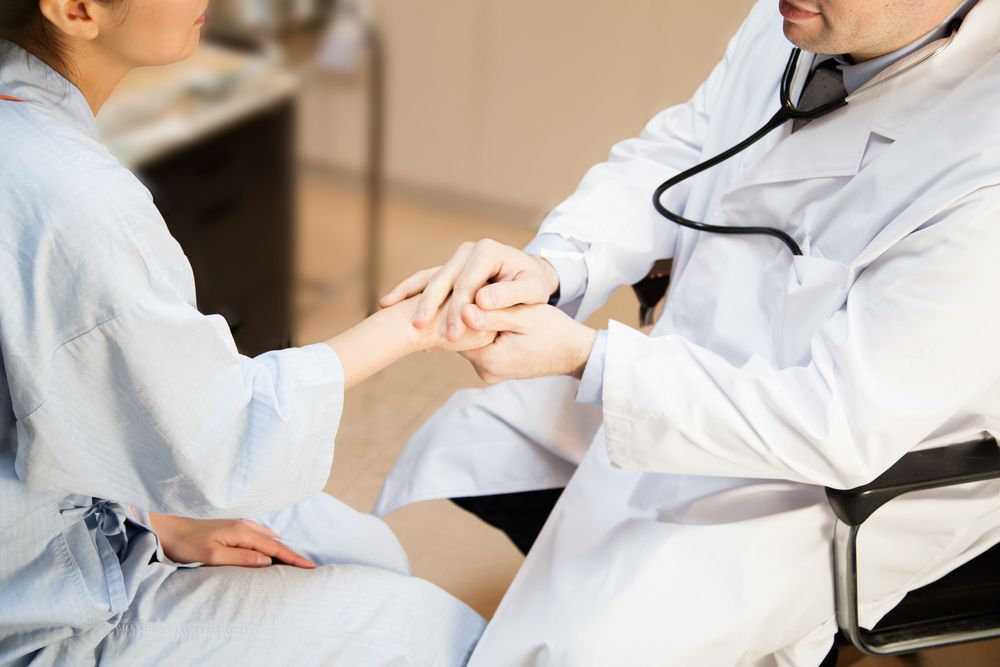A Cancer Survivor’s Guide to Seeking a Second...Third...or Fourth Opinion
During my own cancer journey, I’ve learned a lot about the importance of asking questions and getting not just a second opinion, but also multiple opinions. I had to be my own advocate to ensure the best possible care. Otherwise, my outcome might have been very different.
After surgery, one of my neurosurgeons gave me my pathology report that explained specifics about my tumor. Since I had surgery in a clinical trial at the National Institutes of Health, I had to find a hospital for ongoing care. During my first appointment with a new neuro-oncologist, I was told no further treatments were necessary at that time. But, the pathologist had not reviewed my slides yet, and the hospital would be in touch.
I returned to work one month after surgery and three months later, I realized that I had not heard from the hospital about my pathology results. I was able to speak with the pathologist directly who apologized for not reading my slides yet. During our next conversation, he told me he thought the tumor was more aggressive and likely needed more cancer treatment.
Because his opinion was so different than that of the opinion of my initial doctors who performed the surgery, I asked for a third opinion from a pathologist at another hospital. The third report agreed with the first pathology report.
I had three opinions, the second of which was conflicting with the other two. I decided to get a fourth opinion. The new pathologist at a different hospital said my type of brain tumor was somewhat similar to that of the first and third opinions. Based on several pathology reports, and conversations with neuro-oncologists and pathologists, I felt comfortable that I did not need further conventional treatment at that point. Instead, I had regular MRI scans, and used some complementary and alternative medicine, including herbs, supplements, acupuncture, craniosacral therapy, spiritual connections, support groups, psychotherapy and other strategies.
During those six months, I learned first-hand why it’s important to get multiple opinions. Studies indicate that cancer care is not always the same at different institutions. To make the most informed, educated decision about high-quality cancer care—including potential clinical trials, molecular testing, and other forms of precision-medicine—I consulted with several hospitals and oncologists. I also suggest getting a second opinion—or a third, or even a fourth opinion if necessary. Those approaches can be used in many other ways like multiple pathology reviews and reports.
In the coming years, based on my neuro-oncologist’s plan, I had MRI scans every three months, then every four months, from there every six months, and finally I was told to wait 12 months before my next MRI. I was thrilled to be a five-year brain tumor survivor and cancer free!
But then just a year later, when I had my next MRI, not only was I informed of a recurrence, I was told it presented on multiple MRI scans since 2000. I was overwhelmed with disgust—I wasn’t informed of my recurrence for four years. I completely dissociated, feeling tremendous sadness and lack of trust—and not to mention how much of my time, energy, and money was spent on MRIs, neuro-oncologist appointments, as well as radiology reviews and reports. I had to rise above any hopelessness, helplessness, anger and rage—and learn about better self-advocacy and self-care. I used integrative cancer care for the whole person, addressing the physical body, mind-body connection, spiritual vitality and social support.
Each and every year, I continued getting MRI scans, and communicated with neuro-oncologists, practitioners, and providers regarding any questions. Ultimately, as the tumor was slow growing for many years, I needed my second awake brain surgery in 2011 at the University of California, San Francisco. But, more treatment was necessary.
I had my third awake brain surgery in November of 2013 at University of California, Los Angeles (UCLA). Radiation, oral chemotherapy, and DCVax-L immunotherapy with a dendritic cell-based vaccine occurred at UCLA in 2014. I continue to have MRI scans, and I focus on ways to support my optimal health and healing as an 18-year brain tumor survivor.
Along with asking for multiple opinions about potential treatment and pathology reports, consider asking for copies of medical reports and testing. If you think a specific doctor or provider might be able to review more than one opinion, consider a conversation by phone or in person. You can also reach out to loved ones and ask for help, contact cancer non-profits about your situation, and consider a cancer coach. Be proactive and engage in actions!
Jeannine Walston, an 18-year brain tumor thriver, is passionate about sharing her extensive knowledge and insights learned from her personal health and healing journey. Jeannine is a skilled cancer coach with deep professional experience in the cancer field. She is an expert on various topics covering conventional cancer, and specific proficiency on integrative approaches to support the "whole person." Her passionate flare and force shines to educate and advocate! Jeannine lives in Los Angeles, California and works nationally and internationally.
